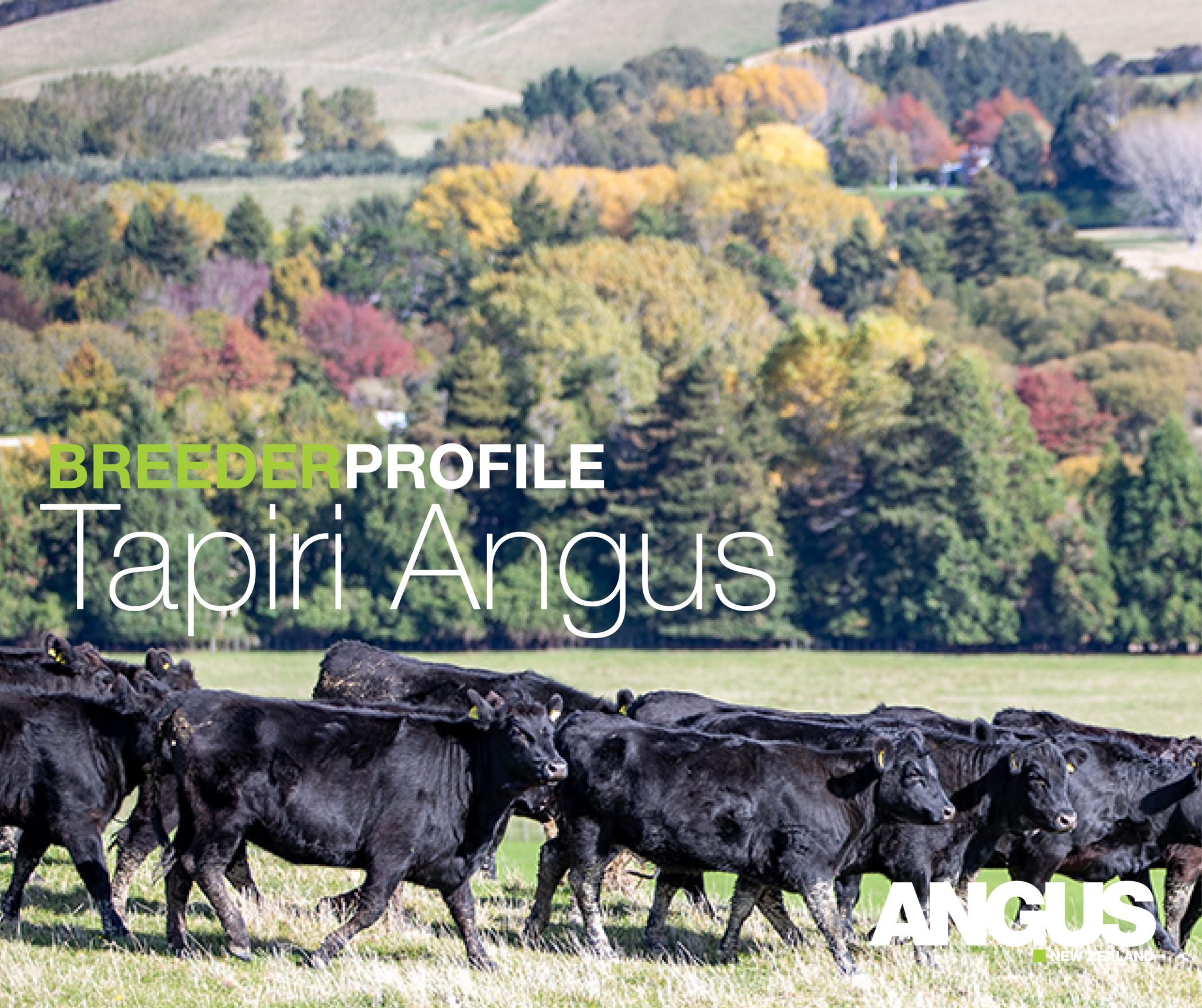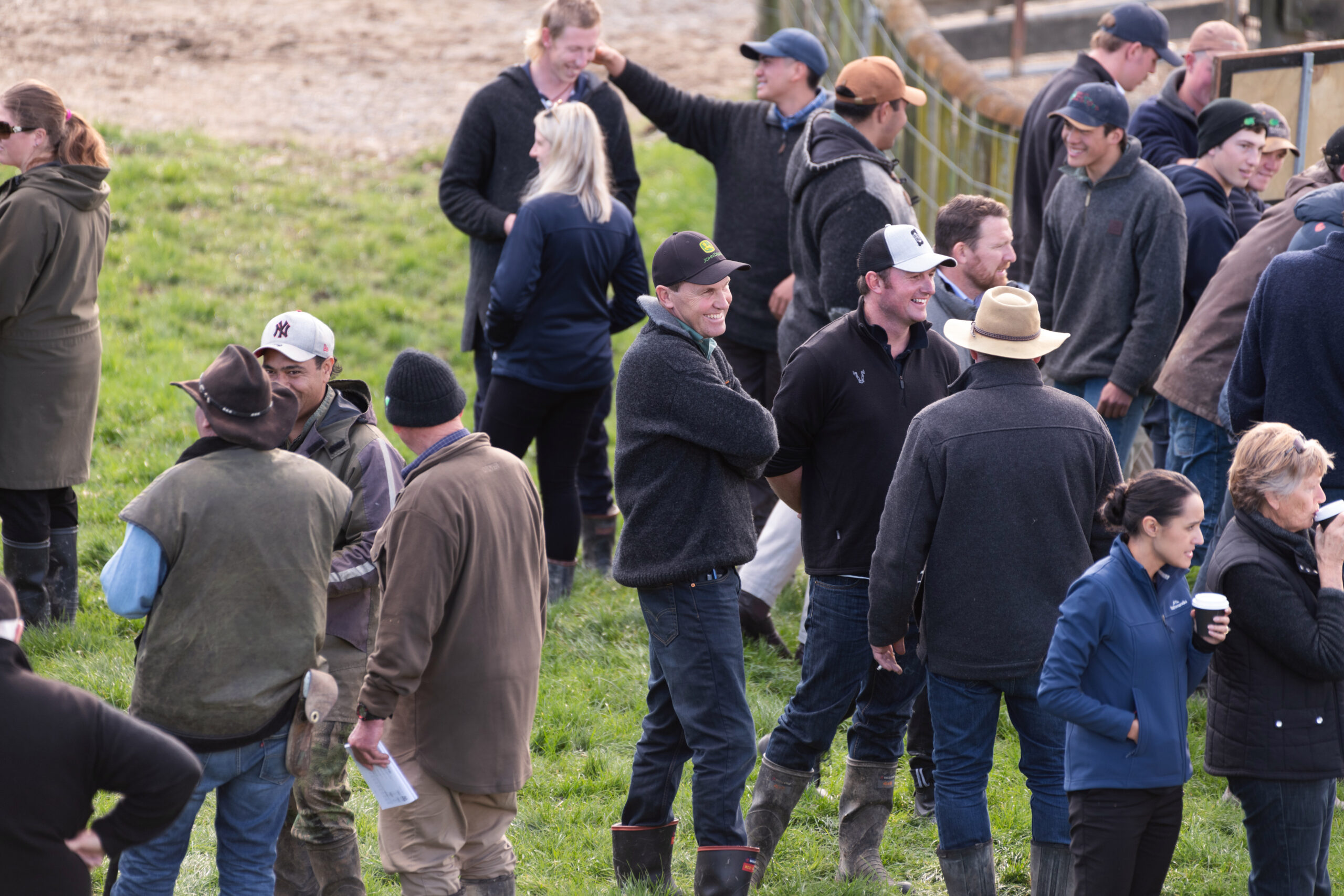
TAPIRI
ANGUS
FOR BETTER BALANCED BEEF
Breeder Profile:
Rob & Lucy Thorneycroft
Words by
Natalie Campbell
Photos by
Belinda Pratt
TAPIRI ANGUS MARKS 60 YEARS OF BREEDING IN THE WAIRARAPA
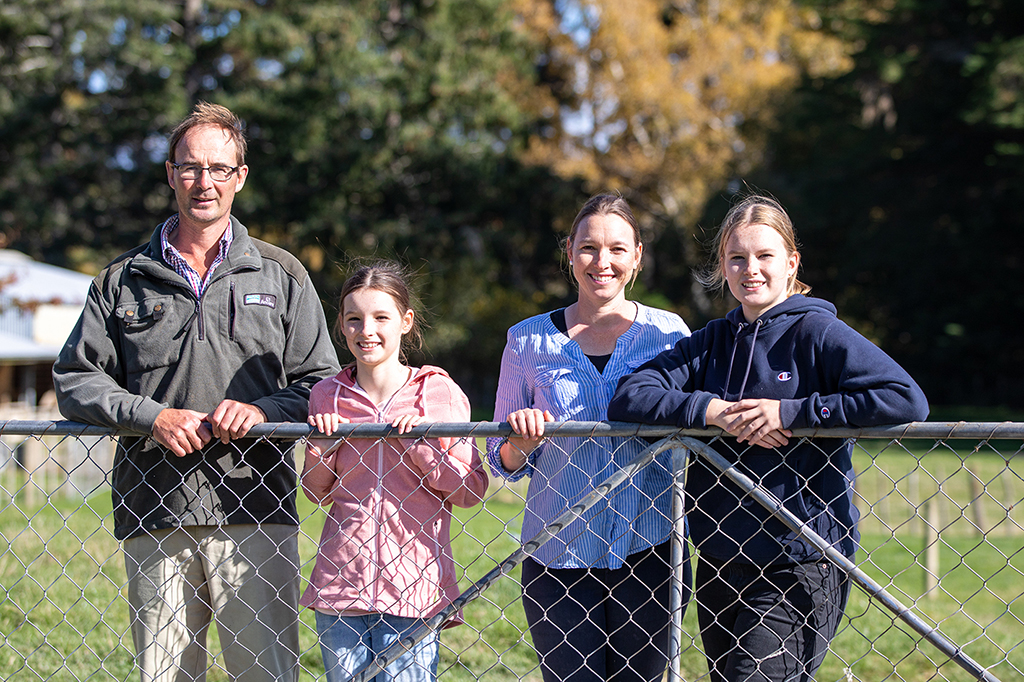
Continuing stewardship of the land that’s been in the family for four generations is at the forefront of Rob and Lucy Thorneycroft’s minds as they develop the family business.
The Thorneycrofts of Tapiri Angus, in the Wairarapa, are continuing the legacy started by Lucy’s grandparents, Stuart and Ivy McLachlan in 1961, and continued by her parents, Ross and Julie.
Tapiri Angus, which was established with foundation females purchased from Mr F.D. Shaw of Rawaka Stud, now encompasses two properties – the flat to medium hill country 270ha Tapiri property at Rangitumau north-east of Masterton, and a 630ha (480ha effective) hill country property at Tiraumea in North Wairarapa called Benmore.
Lucy is fourth generation on the original Tapiri property which the McLachlan family purchased in 1924, after settling in Rangitumau in 1859. She shares with her father and grandfather a love of the Angus breed.
“Dad and Stu were firm believers that Angus cattle are top performers in the East Coast environment, and always bred for these conditions”, she says.
The stud Angus herd today comprises 120 registered females, including first calvers. Running alongside are 1150 mixed-age ewes and 120 Southdown ewes belonging to the family’s Lodge Southdown Stud, started by Lucy’s great grandfather, Norman.
Lucy says the family has been breeding Southdowns for 108 years and it’s a privilege to be able to continue that legacy. In addition, the Benmore property is home to 2500 Romney Coopworth breeding ewes plus 950 replacements, achieving a 145% lambing, and a commercial herd of 80 Angus breeding cows derived from the Tapiri Angus Stud.
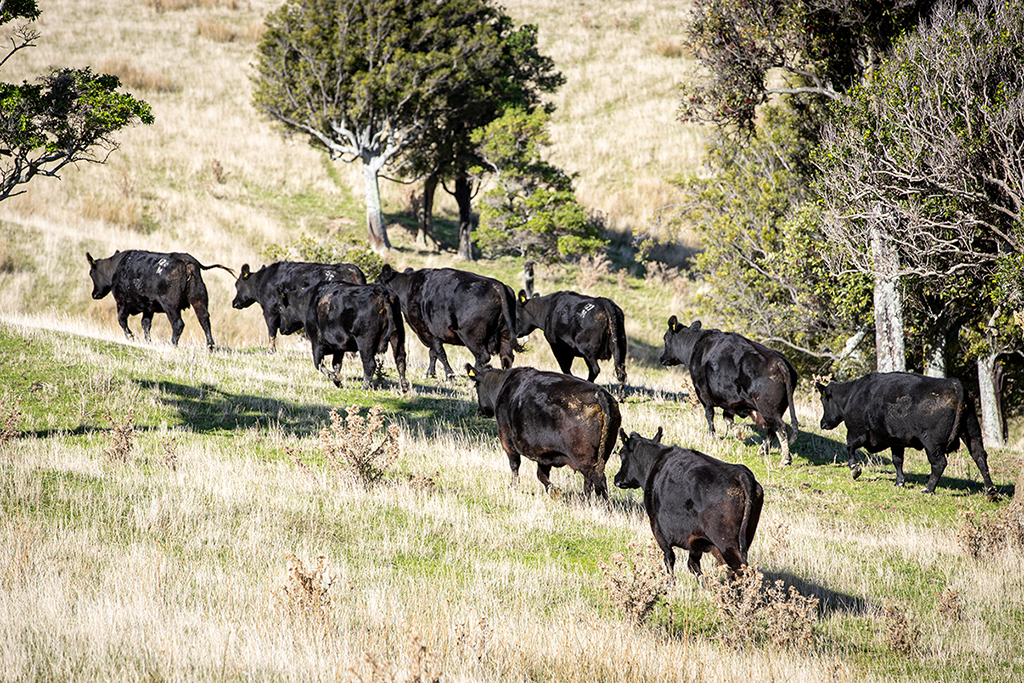
While Lucy grew up on the Tapiri property, Rob grew up on a farm at St Arnaud in the Nelson Lakes District. After obtaining a Diploma in Farm Management at Lincoln University, Rob went shepherding in the Wairarapa where he met Lucy who was working at farm consultants Baker Ag, having graduated with a Bachelor of Commerce, Marketing and Management from Otago University.
With the sheep and beef sectors running through their veins and the goal of farm ownership firmly in their sights, the young couple purchased Benmore in 2007, two years after marrying.
Rob and Lucy could see the potential of Benmore and while it needed some development, it provided the opportunity to buy an economic unit in a summer safe district.
“It had untapped potential,” says Rob.
That potential has carefully been harnessed and what was once a 3800su property now carries 4700su.
To make these gains a capital fertilizer and pasture renewal programme was implemented along with the development of sheep and cattle yards and commissioning an existing woolshed. Internal subdivision had been done by the previous owner.
From the outset the couple wanted to be strong performing farmers so they entered the Wairarapa Sheep and Beef Farm Business of the Year competition. This provided an opportunity to benchmark and measure themselves against other high performing farmers.
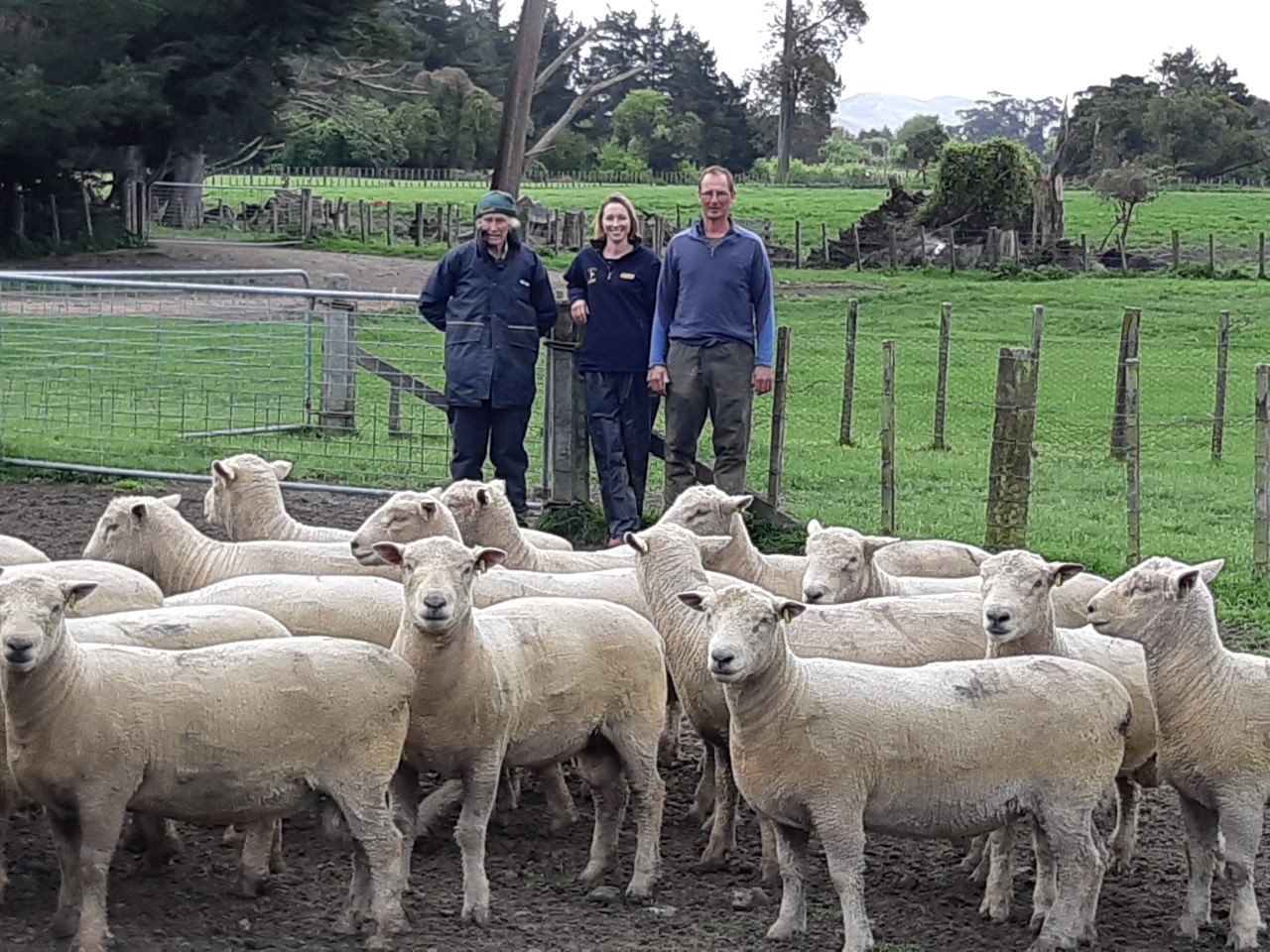
On their third entry, in 2015, they won the title, with judges praising the pair for having a very strong and complementary husband and wife partnership, a collaborative approach to environmental management, and exceptional stock performance.
Lucy says while they were developing their own property they were also helping and working alongside her parents Ross and Julie McLachlan with farm succession planned for the future.
The succession process was brought forward when Ross became unwell in 2017.
Retaining Benmore, the Thorneycrofts purchased a 25ha block at Rangitumau to be based closer to Tapiri and employed a stock manager for the Tiraumea farm.
In 2017 they purchased Tapiri, taking over the Angus and Southdown studs from Lucy’s parents. By 2019 they had built a sale complex and hosted their first on-farm sale that year, recording a complete clearance. Moving to an on-farm sale had been among Ross’s plans for the stud and he had mapped out where the sale complex would go but, poignantly, passed away two weeks prior to the inaugural sale.
“It was a difficult time and we couldn’t have done it without all the support we received – we’re incredibly thankful,” Rob and Lucy agree.
“Despite the really difficult circumstances, hosting our first on-farm sale was an exciting challenge and we received so much support from clients, agents, friends and family.”
Two years later the stud has notched up 60 years. By the couple’s own admission, the 60th milestone was kept fairly low key.
“We acknowledged it in the speeches at the sale and we served great Angus beef, and celebrated with clients, friends and family over a few ports.”
Rob and Lucy laugh when they say they celebrated by investing in a $106,000 bull – Kaharau Q327 – the top selling beef bull in New Zealand for 2021, purchased in partnership with Sam and Sarah Duncan of Elgin Angus Stud, in Hawke’s Bay.
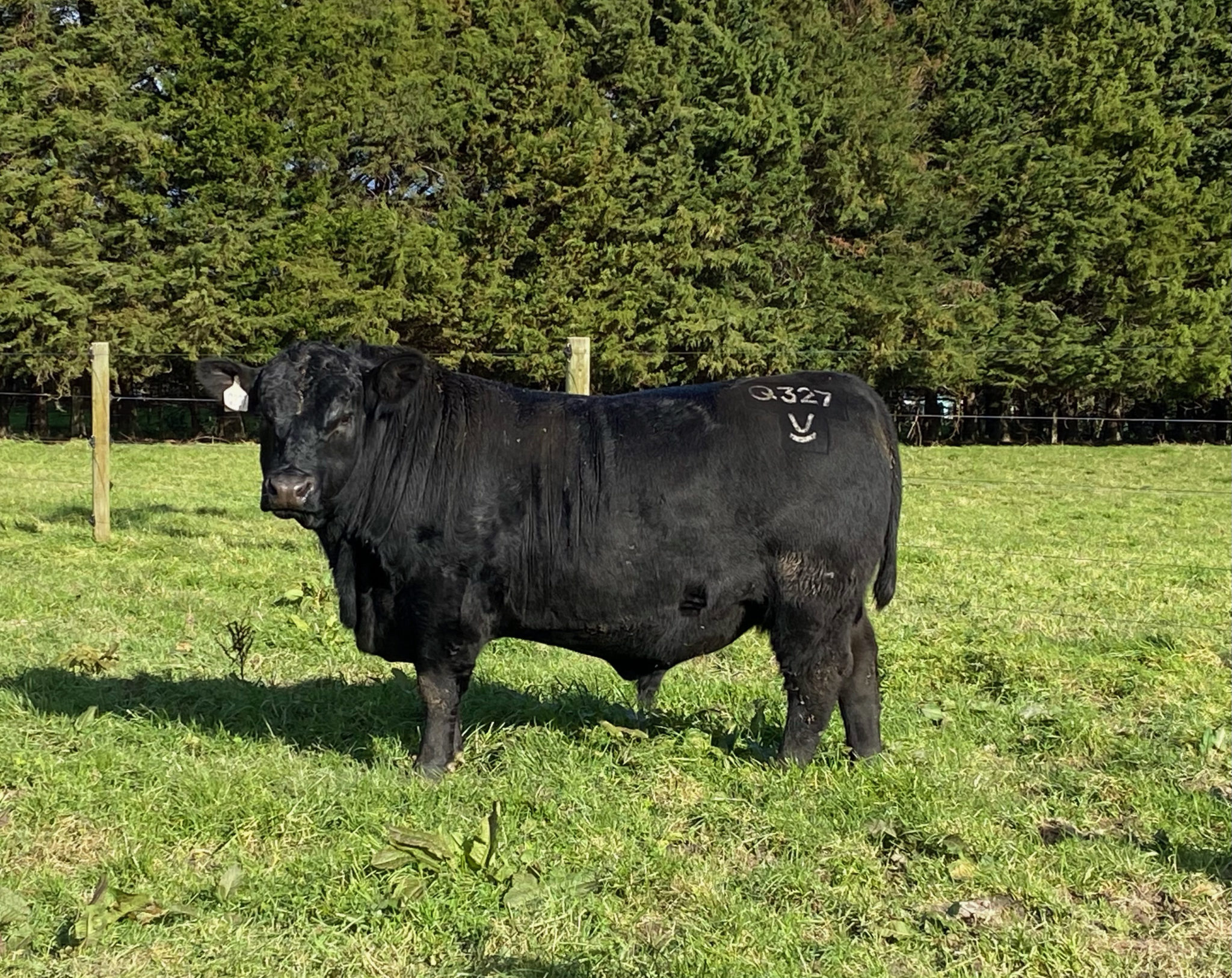
“We are thrilled to have him and we’re really pleased we were able to partner with Sam and Sarah”, says Lucy.
Lucy and Rob agree they have taken up the reins of the family business with strong and sustainable foundations.
The breeding philosophy of Tapiri Angus hasn’t changed over the years.
“Our aim has always been to produce sound, quiet cattle with constitution, longevity and fertility combined with good bone, a strong head and jaw and balanced EBVs,” says Lucy.
The EBV package follows closely to a phenotypically correct animal.
“To us, a bull has to be structurally sound, quiet and have the phenotype we like with the EBVs to back him up,” says Lucy.
“EBVs are important, but first we have to like what we see in the paddock,” the couple agree.
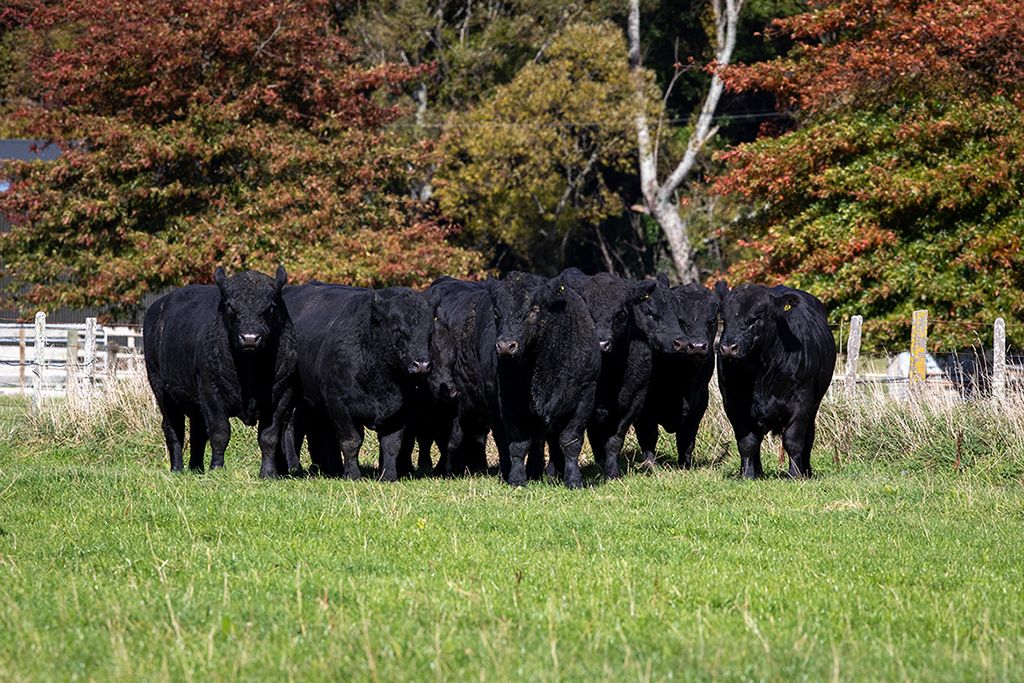
The new sire the couple bought in 2021 more than meets their requirements for both phenotype and EBVs. Rob describes him as “a bull for the future – a meaty carcase bull with great fats and IMF”.
Lucy agreed and said “he ticked all the boxes for us. He is beautifully balanced, thick and deep, with a strong head and jaw, extremely quiet, and structurally very sound”.
Moving forward, marketing of the stud is an area they’re looking to develop.
“I have a marketing degree so I had better use it,” says Lucy, laughing.
They are in the process of developing a website and have a stud Facebook page and advertise in newspapers. But relationships, networks and word of mouth are also very important to the couple.
Rob says they are active in farm discussion groups and enjoy talking to others about what their bulls can offer while also learning what potential and existing clients want.
They also take the time to check in with clients each Autumn to see how the Tapiri genetics have performed.
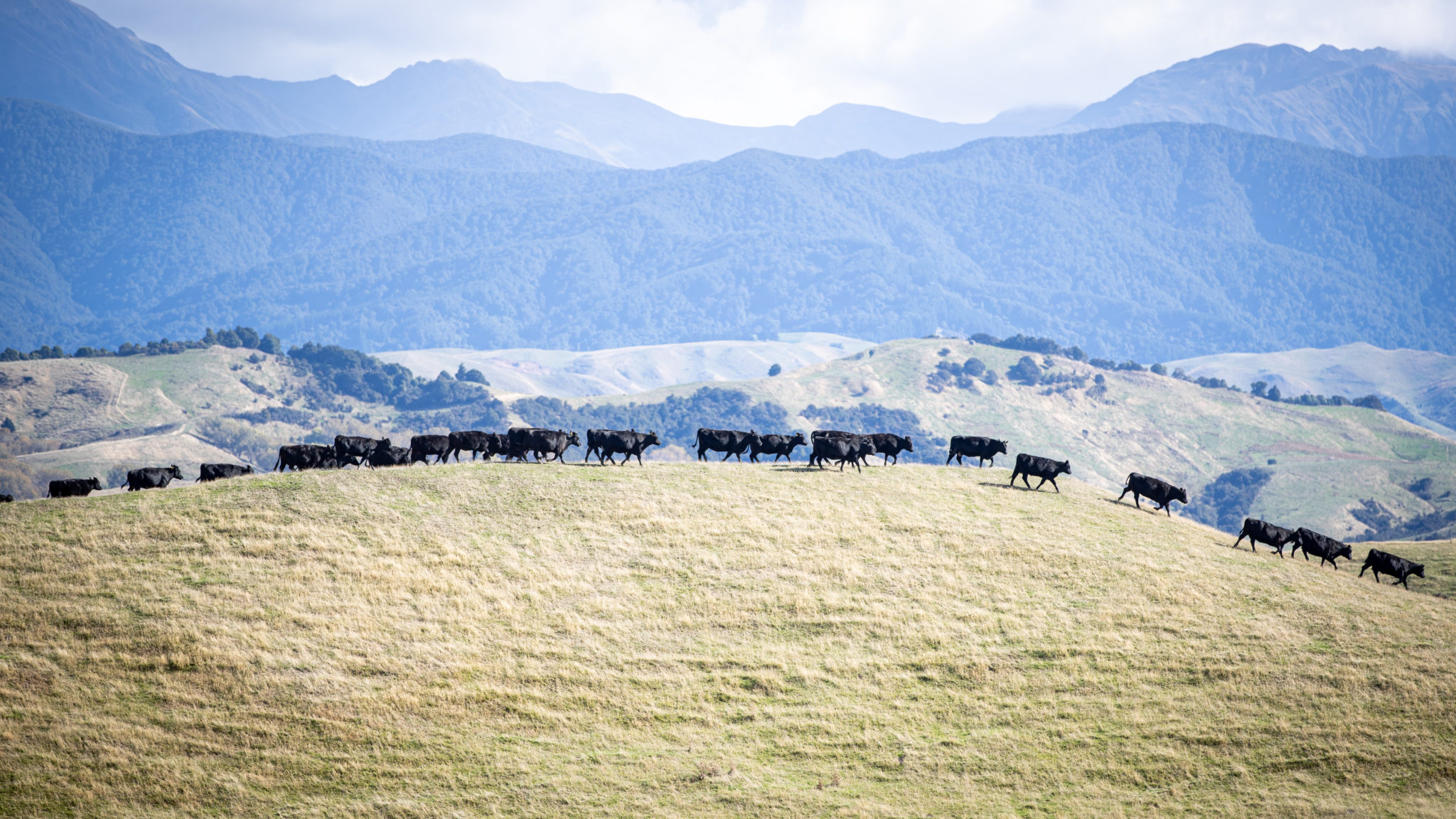
“We look forward to catching up with our clients to see how scanning and weaning went. We make a point of calling our bull-buyers and going to weaner fairs to see the progeny on the ground,” says Rob.
“It’s really satisfying to see our clients’ succeed commercially,” they say.
Wharekauhau Station in South Wairarapa, a loyal client of Tapiri Angus has topped the Masterton-Martinborough Weaner Fair for the past eight years (consecutively) with progeny from Tapiri bulls. Before that, Tapiri genetics enabled Waituruturu Station to top the Taupo Weaner Fair for a number of years.
Looking back on sires of influence, the couple say bulls with great bone and substance have always been a feature.
Lucy names more recent influential sires as Te Mania Infinity, Matauri Reality and a son of Kaharau Class 790 to have played a role in the development of their herd.
“Dad used a son of Infinity with high IMF and we can see that influence.”
Rob goes on to say that IMF has an important part to play in the eating quality of Angus beef.
“IMF will continue to be an important driver for our commercial clients for their progeny. While it’s important for eating quality, it is also part of cattle doablity – their capacity to recover after challenging weather events,” says Rob.
The Thorneycrofts own sheep and beef progeny, except for that of the studs, is either finished or sold as forward stores.
“We’d sell about 70% finished and the balance forward, but that depends on the season and some years it could be 50:50,” says Rob.
A YEAR IN THE THORNEYCROFT BUSINESS
Calving of the stud herd begins mid-August with the cows set-stocked on hill country and conserved pasture at the beginning of the month.
All calves are tagged and weighed at birth.
In November the cows are sorted into their mating mobs.
The Thorneycrofts use AI extensively as it allows them access to genetics that would otherwise be out of reach. All heifers are inseminated as well as a selection of their top cows.
Following AI and mating, the cows are run back on the hills through summer until weaning in April.
Rob and Lucy say weaning weights and dates can fluctuate depending on the season.
“It is variable season to season and the weather means we can wean earlier or later,” says Rob.
After weaning, the cows are put to work cleaning up pasture behind the ewes on the hills and stay there until they are set stocked on calving country. The Thorneycrofts plant 6ha of kale to feed out throughout winter, with that area forming part of the 15ha regrassed annually at Rangitumau. A further 20ha is regrassed each year at Benmore, where new grass follows a plantain and clover crop.
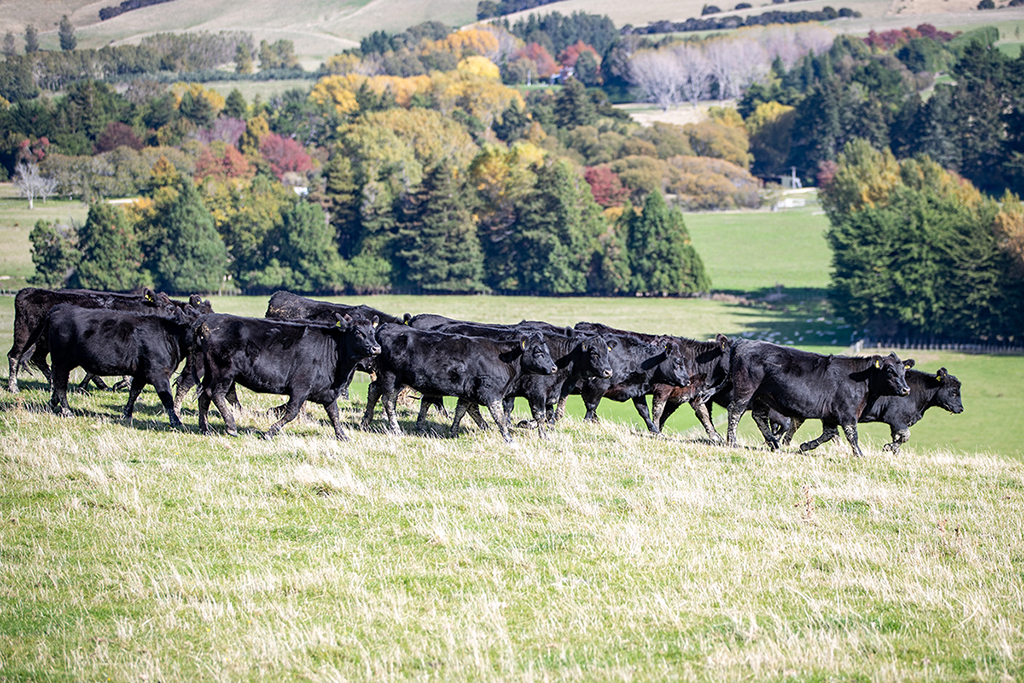
Other future property developments include a water reticulation project on the hill country of Tapiri and fencing off waterways.
Rob says the hills are punctuated with springs that run year-round and there’s a creek that they’ll fence off this summer and replace with reticulated water. On Benmore the couple have fenced 4km of waterways and put 100ha of bush into a QEII covenant.
At Rangitumau, the planting of natives and exotics is also occurring including 1ha of planting around a lagoon that was fenced off two years ago.
Lucy says her parents enjoyed trees, so they are lucky that Tapiri is already well planted, providing stock shade and shelter.
“Dad loved trees and planting; there are a lot of natives and exotics and we’re really lucky to have them,” she says.
The Thorneycrofts firmly believe they are custodians of the land for future generations and with that in mind they make use of technology that adds value while also still enjoying doing some things the more traditional way.
Their fertilizer is applied by contractors running Track Map software that allows for specific placement of fertilizer (away from waterways) while employing strategic fertilizer use and following a farm nutrient budget.
“Rob is hands on and is a visual appraisal stockman but that’s complimented with some technology,” says Lucy.
“We like doing the basics really well and any technology has to add value,” she says.
Cell phones with synchronized diaries, feed and nutrient budgets, CashManager, DNA testing, sire verification, EMA, IMF, and fat scanning are some of the technology they have identified as adding value and use.
Looking ahead, the couple aim to develop a resilient farm system that can handle variable climate challenges.
Rob says they’d like their business to be able to adapt to those challenges while being sustainable and able to pass it on to the next generation should they wish.
Rob and Lucy’s daughters, Emma (14) and Annabel (12) are an important part of the business and help out when they can.
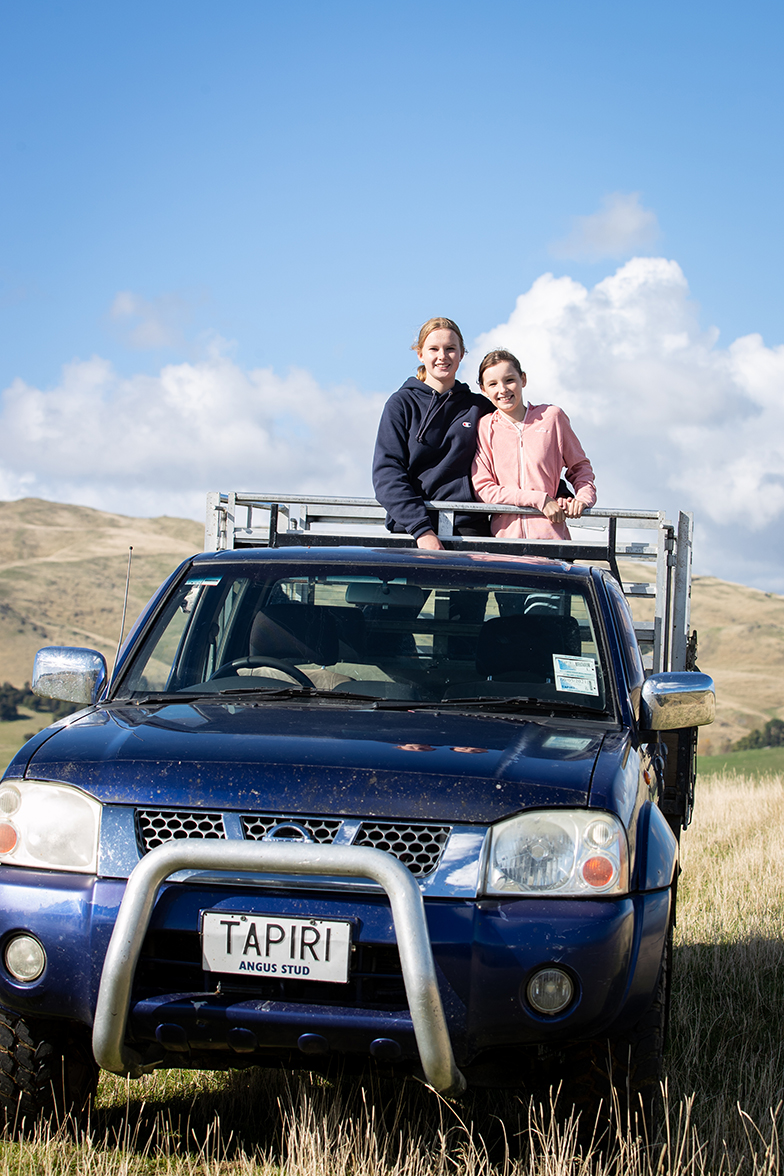
“They enjoy being out on the farm and helping us with the stock work,” says Rob.
Understanding regulatory challenges and the obligations they have under new regulations is another focus for the couple.
“For us it’s about having the farm ready for the next generation to take on. We see ourselves as caretakers and we are really grateful for the opportunity to carry on the stud with strong foundations to build on,” says Lucy.
Looking to the future the Thorneycrofts would like to slowly grow the stud while maintaining quality.
“We’re really grateful for the help and support we’ve been given from other breeders and agents and we are lucky to have a strong team around us to draw upon,” says Lucy.
“Relationships are really important to us and we’re enjoying the journey of farming.”
Follow Tapiri Angus on Facebook
COMMUNITY THE HEART OF RURAL LIFE
Community is at the heart of any rural region and the Thorneycrofts believe in supporting theirs.
Rob is past chairman of the Wairarapa Sheep and Beef Farm Business of the Year and still sits on the committee. He also serves on the John Daniell Memorial Trust which offers grants and scholarships to people wanting to further their studies in the sector.
“I’m passionate about the industry and encouraging young people to be part of it,” says Rob.
Lucy is one of the founders of Wairarapa Rural Women Incorporated, a farm discussion group set up in 2013.
“We meet every six weeks and essentially provide opportunities to learn and share ideas, evolve skills, provide leadership and build friendships”.
She’s also active on the St Matthew’s Old Girls Committee – the high school their daughters Emma and Annabel attend.
They are also members of the Alfredton Farm Discussion Group.

